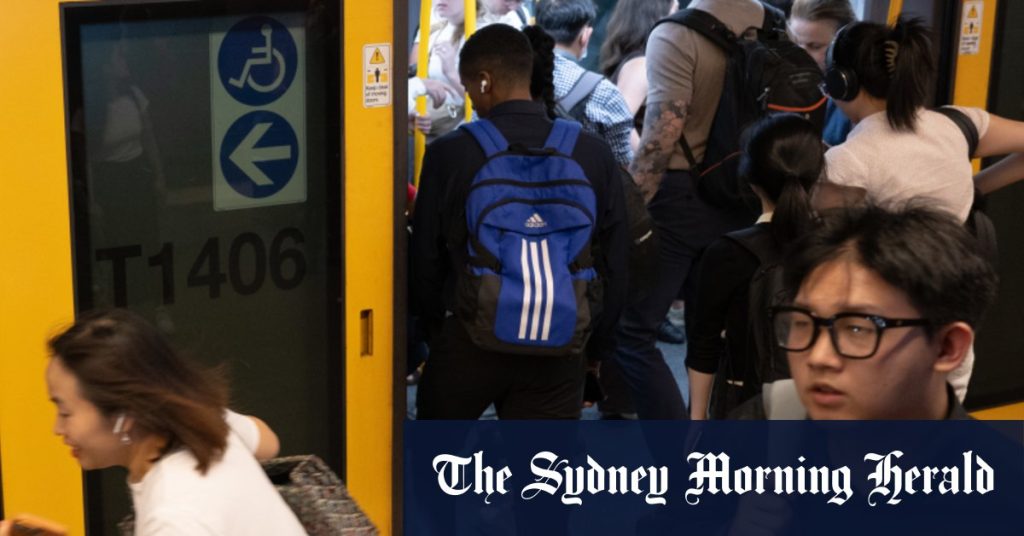The ongoing dispute between the New South Wales government and rail unions over pay and conditions has reached a critical juncture, with hopes for a last-minute resolution before a Fair Work Commission hearing. Rail, Tram and Bus Union (RTBU) state secretary Toby Warnes expressed a willingness to continue negotiations with the government overnight, acknowledging that a breakthrough required effort from both sides. The union’s revised offer represents a significant compromise from their initial demands, signaling a potential path towards resolving the protracted conflict.
The core issue revolves around the unions’ counter-offer of an 11% pay rise over three years, a substantial reduction from their initial demand of a 32% increase over four years. This revised proposal includes a 4% rise in the first year, followed by 3.5% in the subsequent two years. The package also encompasses over 100 conditions, addressing issues such as standardizing allowances for electrical and maintenance workers and improving redundancy provisions. The government’s offer stands at a 14% increase over four years, including a 1% increase contingent on savings realized from the merger of Sydney Trains and NSW Trains.
The backdrop of this negotiation is marked by two days of significant disruption to Sydney’s rail network caused by union industrial action. The government subsequently obtained interim orders from the Fair Work Commission halting further action pending a full hearing to determine the economic impact of the work bans. Transport Minister Jo Haylen acknowledged the challenge of meeting the high threshold for Fair Work intervention but emphasized the government’s commitment to presenting evidence demonstrating the substantial economic and community harm resulting from the industrial action.
Warnes outlined the potential outcomes of the Fair Work hearing, stating that if the industrial action is terminated, the dispute will proceed to arbitration. Alternatively, if the action is merely suspended, negotiations will resume following the suspension period. The RTBU represents approximately 60% of the combined 13,300 workers at Sydney Trains and NSW Trains, while the Electrical Trades Union, another key player in the dispute, represents around 940 employees at the state-owned rail operators.
The central tension in this conflict lies in balancing the unions’ demands for fair wages and improved working conditions with the government’s responsibility to manage public finances and minimize disruption to essential services. The unions argue that their revised offer represents a significant concession and reflects their commitment to reaching a mutually acceptable agreement. They also highlight the importance of addressing long-standing concerns about working conditions, including harmonizing allowances and improving redundancy provisions. These conditions, they argue, are essential for attracting and retaining skilled workers and ensuring the long-term viability of the rail network.
The government, on the other hand, emphasizes the financial constraints within which it operates and the need to prioritize responsible spending. It points to the already substantial pay rise offered and the inclusion of a performance-based increment linked to the merger of Sydney Trains and NSW Trains. Furthermore, the government underscores the significant economic and social disruption caused by the industrial action, arguing that it has a responsibility to minimize such disruptions and ensure the smooth functioning of essential services. The Fair Work Commission hearing will play a crucial role in determining the next steps in this complex dispute, potentially leading to either arbitration or a resumption of negotiations.



